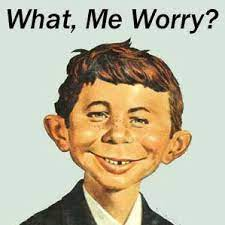The Legislative Analyst's Office (LAO) keeps trying to get the legislature and the governor to pay attention to the future fiscal problem caused by the State Appropriations Limit (SAL), also known as the Gann limit. Back in 1979, voters passed the Gann Limit, a cap on how much revenue the state could collect based on population growth and inflation. In the original version, when revenue exceeded the limit, the state had to give rebates to taxpayers. Essentially, by limiting revenue the state could keep, the Gann limit was intended to limit expenditures.
Because the state fell into a recession soon thereafter, the Gann limit was not reached until the late 1980s. When it was, rebates went out. A subsequent proposition modified and largely gutted the limit until the dot-com boom came along. But just as the state began bumping up against the modified limit, the dot-com boom turned into the dot-com bust, and the limit quickly faded away as a budgetary issue.
Nowadays, however, we are again bumping against the limit. And there is an additional problem. Because of other ballot-box budgeting, we have large elements of state spending geared by formulas to revenue. But the Gann limit says some of that revenue is not available for spending. So, the LAO keeps pointing out, even if there is no recession in the next few years - a circumstance that is normally associated with robust revenues and budgeting - we have a fiscal problem in that the net effect of voter-enacted policies is that each extra incoming dollar will require more than a dollar of spending, as the chart below - from the latest (futile?) LAO attempt to get the legislature's attention - shows.
It's another reason not to put a lot of confidence in the so-called multiyear budget compact UC thinks it has with the state.
Source of chart (issued yesterday): https://lao.ca.gov/Publications/Report/4602.
So far, the main expression of the Gann limit is that the governor proposes various rebates that keep us just below the limit. But the chart shows that this approach will become harder to implement in future years. And, in an election year, this future problem is not something that anyone in Sacramento wants to worry about right now.



No comments:
Post a Comment